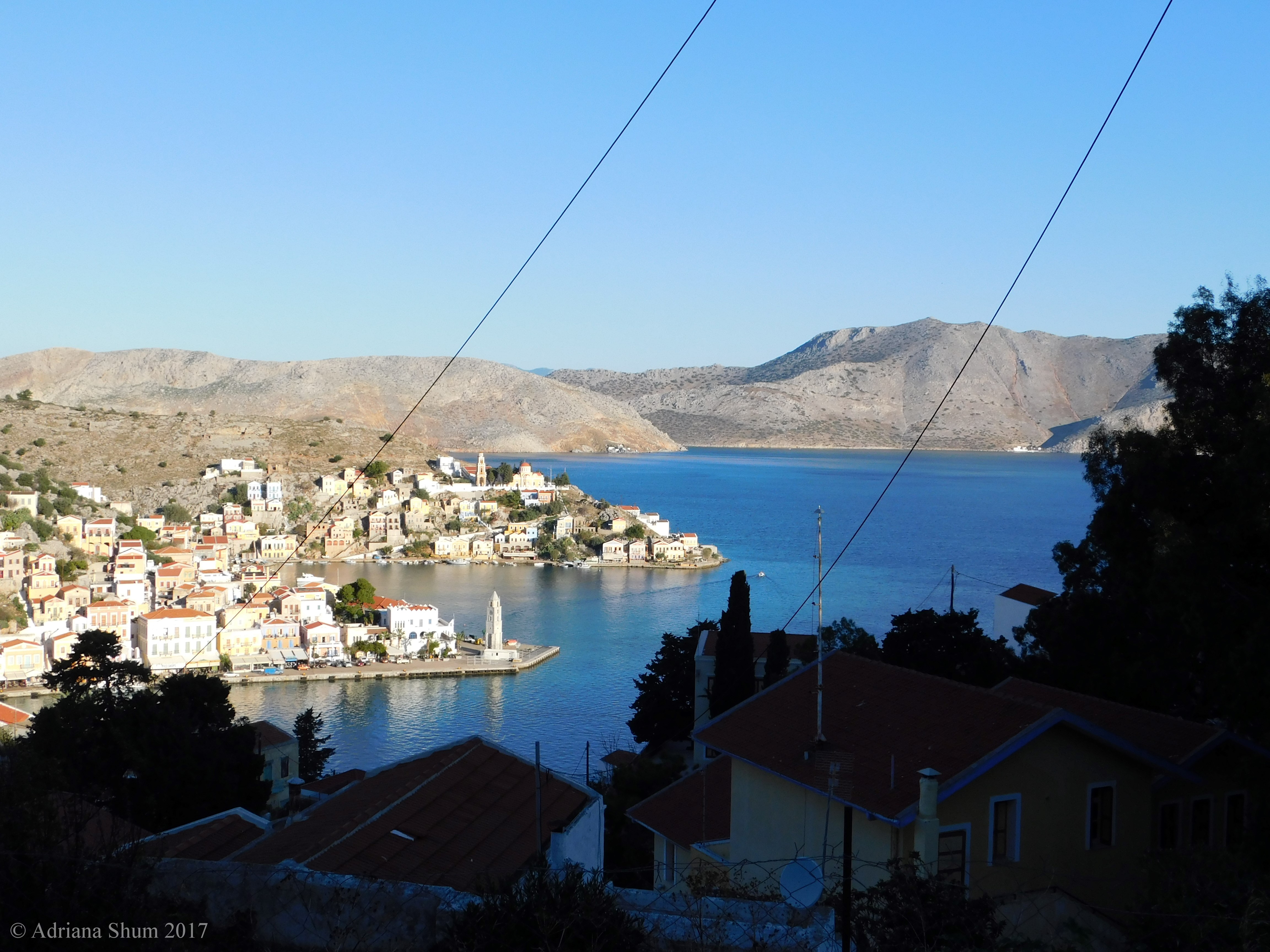Thoughts from a Small Greek Island

I live on the small Dodecanese island of Symi. Surrounded by Turkey on three sides and only about 25 nautical miles from the popular holiday island of Rhodes, Symi is at once remote and also in the centre of things. Symi is a heritage site, its 19th century neo-classical architecture protected by the same rules and regulations that protect the Parthenon and Greece's many other archaeological wonders. No mass tourism here. We live slightly uncomfortable lives in beautiful surroundings, perched on a lump of rock that, despite a lack of water sources and with minimal arable land, has still been in continuous habitation for at least 3 thousand years.
We are on the easternmost border of the EU, an overnight ferry away from mainland Greece and its politics. Often forgotten when it comes to central government hand outs and infrastructure development, Symi is nonetheless an important part of Europe's boundary with the Middle East. Turkey is only a few miles away and Symi has provided succour to many refugees from the conflicts in Syria and Iraq in recent years. Indeed, in the 25 years that I have lived here, there has always been some sort of refugee crisis on the island's doorstep. At one stage there were so many Afghan refugees on the island, they actually had two cricket teams! The policy in those early days was to encourage refugee arrivals to get jobs and start paying into the country's creaking welfare system, knowing that they were unlikely to stick around long enough to claim a pension. Some moved on to more prosperous parts of the EU as soon as their asylum applications were processed. Others married locally and put down roots.
Nowadays, with Greece under much pressure to oblige the EU and its major players in order to secure tranches of bailout funds, the government has been forced to handle refugees and migrants more strictly, keeping them in concentration camps, euphemistically referred to as 'hot spots' on the islands of Leros, Lesvos, Samos and Kos as well as on the mainland. The situation has turned nasty. Standards of living are little more than squalid and often involve tents in muddy fields in freezing winter conditions. Some are more likely to be successful in their asylum applications than others, leading to tensions between different ethnic groups.
The presumption that everyone is Muslim and that all Muslims are the same is also a dangerous one. Occasionally violence erupts as people are cooped up in cramped conditions with nothing to do all day. The stress and uncertainty of everyday life spills over. Various aid agencies and NGOs do their best but they cannot solve the root problems of the crisis. There is more money to be made out of war than peace -although we may be sure that the developers are already jockeying for contracts for when the time is ripe to start rebuilding Syria. The global players who are pulling strings to keep the Middle East in a state of instability have no right to complain about the massive displacement of human beings that they have created.
I shall leave you now with those thoughts, from a small Greek island on the edge of Europe.